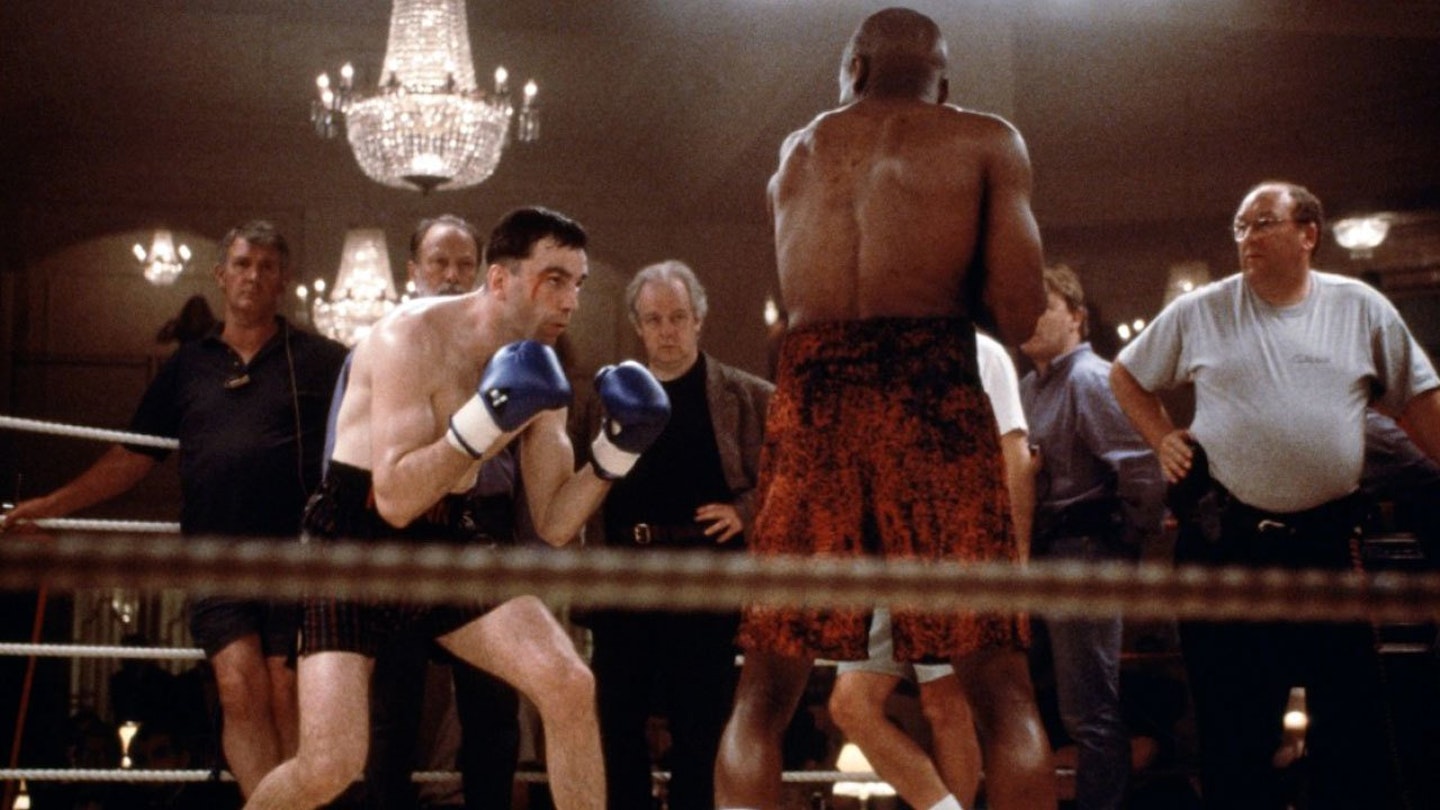Amid a cacophony of cack-handed hijacks of Irish politics for Hollywood gain, Jim Sheridan's clear, intelligent directorial voice once again hits the strident notes of realism. After the towering ramifications of In The Name Of The Father, he returns to Belfast (although films in Dublin) to tell a wonderful love story and paint the starkest picture of life under the shadow of The Troubles since Harry's Game. He's also brought along frequent collaborator and muse Daniel Day-Lewis to deliver the kind of all-encompassing central performance that makes a mockery of the big "acting" that is reeled in and out of the multiplexes every week.
The axis of the story is an unbreakable love-bond between Danny Flynn (Day-Lewis) and Maggie (Watson) teenagers torn apart by Flynn's arrest for IRA activity and 14 year stretch (symbolically the same term of incarceration as Gerry Conlon). Flynn is released days before the ceasefire will sow confusion into the community and restless ranks of the paramilitarists, and returns home to seek out his two lifelong loves: Maggie and boxing. Maggie, though, has a husband (now, too, imprisoned for "The Cause") and a young son Liam (Ciaran Fitzgerald) while Flynn's sacred gym has long since fallen to disuse with former coach Ike Weir (Ken Stott) now preaching sucker punches from a bottle.
What transpires is the tale of a man trying to rebuild his shattered life against the pressures of tribalism, taboo (to interfere with the wife of a "POW" grants a bullet in the head) and political unrest - matters doubly complicated by Maggie's father Joe Hamill (Cox) being the local IRA honcho - and a community that has lived by fear and some kind of belief trying to come to terms with the notion of peace.
Filming with subtle menace, Sheridan is mindful of how the big political picture and token media coverage bear little relevance to the deep-seated social divide of Ulster's capital. This is a daily life punctuated by the shudder of explosions, sniper shots and children hurling Molotov cocktails at advancing riot police. Yet the film's power rests in its concentration on the human costs. After renouncing his IRA past, Flynn is an outcast, his only solace found in the bloodied exertions of the ring. The sheer intensity of the couple's rediscovery is so awkward and pregnant with forbidden desire it is rendered almost unbearable.
Sheridan gets caught directing in shorthand - nominally touching on ideas that are never coaxed to fruition and his "love conquers all" subtext feels overly cosy. But with performances as piercing as these (Watson, Cox, Stott and, of course, Day-Lewis, each faultless to a person) you can forgive overreaching ambitions. And in one unforgettable scene of the young Liam breaking through an army cordon to cradle a possibly booby-trapped dead body, he has imprinted cinema's most searing image of Belfast's bitter legacy. Peace, he reminds us, will never come cheaply.
